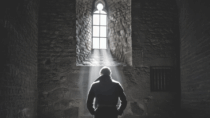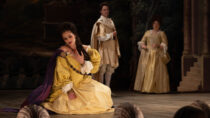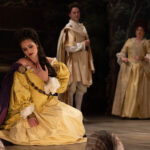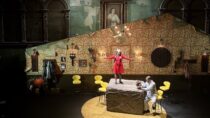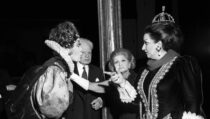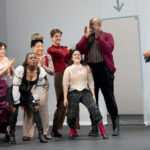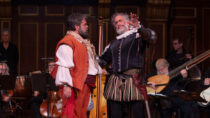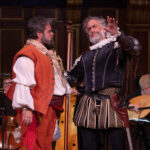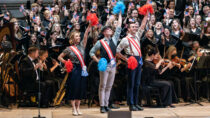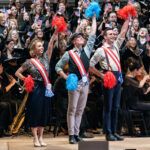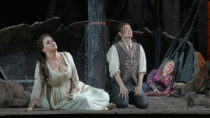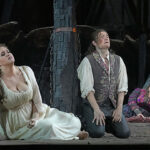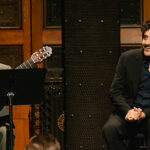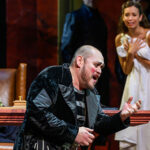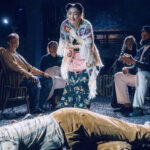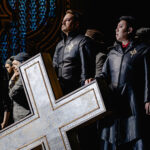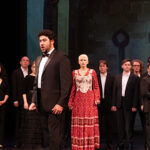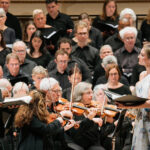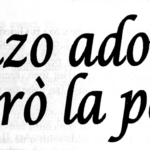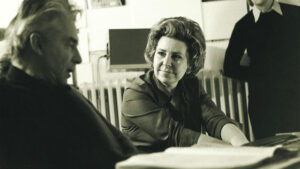
John Yohalem
John Yohalem reports on Catapult Opera’s satiating San Giovanni Battista
John Yohalem wraps up Donizetti Month at parterre box with a look back at nearly six decades of Donizetti operagoing.
Karen Slack is downright magisterial in her recital African Queens.
John Yohalem reports on a serendipitous recital from J’Nai Bridges and Joshua Mhoon in Montclair, New Jersey
John Yohalem reports from the New York Dramatic Voices performance of Act III of Die Walküre
Target Margin Theater proudly boasts that Show/Boat: A River, its small-scale and bare-bones staging of Show Boat (at the Skirball Center on Washington Square through the 26th), is a “bold reimagining” of the classic Jerome Kern & Oscar Hammerstein show, a “new adaptation that explores America’s transformation from the Jim Crow 1880s to the Chicago of the Great Migration to the challenges of today,” but I don’t see it.
There are two problems to address – problems of the sort the arts thrive on addressing.
On Tuesday night, in the commodious concert hall of the Morgan Library, the Boston Early Music Festival forces brought Georg Philipp Telemann’s Don Quichotte auf der Hochzeit des Comacho to New York.
Strike Up the Band! cried the brothers Gershwin (and book-writers George S. Kaufman and Morrie Ryskind) in the first of their three satirical, vaguely political operettas—sort of jazz Gilbert & Sullivan—that they dreamed up in the late 1920s.
Rare is the revival of Il trovatore that boasts five first-rate singers, and such an occasion should be treasured. And so, at the Met last Saturday, it was.
Karim Sulayman’s intentions are to demonstrate links and roots, in themes musical and poetic, crossing every boundary of culture, religion, nationality, genre.
Rigoletto is the perfect opera. The story is straightforward and powerful; none of the action occurs backstage or between scenes or twenty-seven years before curtain rise; and the ethical anvil lands not once but twice, on the title character singing, “La maledizione!” The curse!
Nostalgia ain’t what it used to be.
One moral is that Eugene O’Neill may just not be opera fodder.
They used to say of the island of Crete that it produces more history than can be consumed locally.
I suspect Carolina Uccelli was tough.
To bring a well-known story to the stage, many methods are available.
parterre box turns 30 on Sunday and writers from around the box are reflecting on the legacy of founder James Jorden and three decades of “remembering when opera was queer and dangerous and exciting and making it that way again”
At the northern tip of Seneca, longest and deepest of New York State’s Finger Lakes, sits the pretty little town of Geneva.
In French opera—until Pelleas et Mélisande anyway—there is always a great deal of dance; often, dance rather than song is the main event.
Du Yun is the Pulitzer Prize-winning composer of Angel’s Bone. Her new opera, In Our Daughter’s Eyes, a one-act monodrama for bass-baritone and an orchestra of six, opened the current tenth Prototype Festival, in a performance at the Baruch Performing Arts Center, starring erstwhile Met regular Nathan Gunn.
